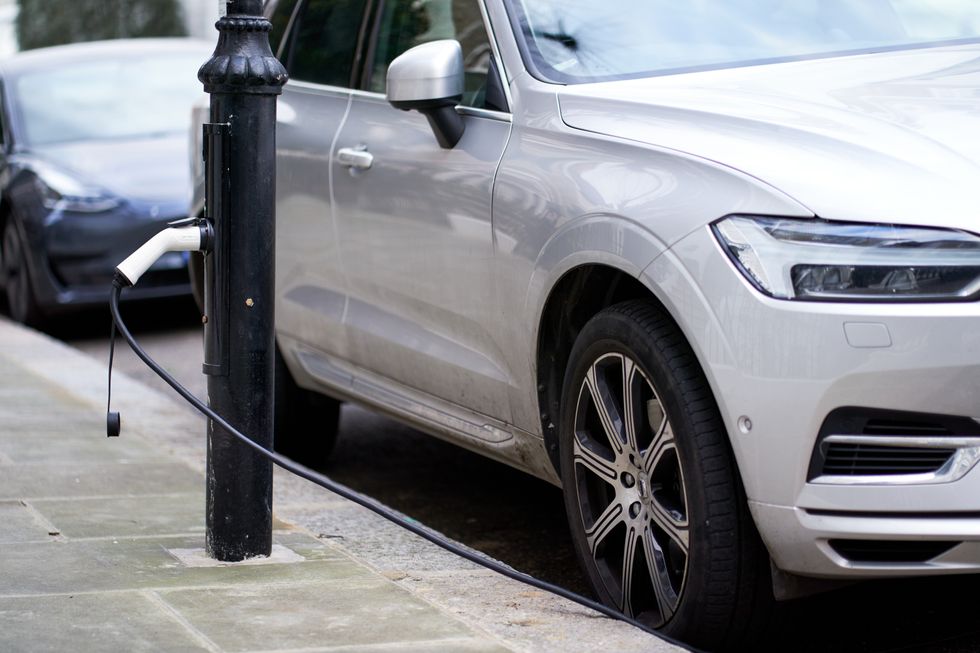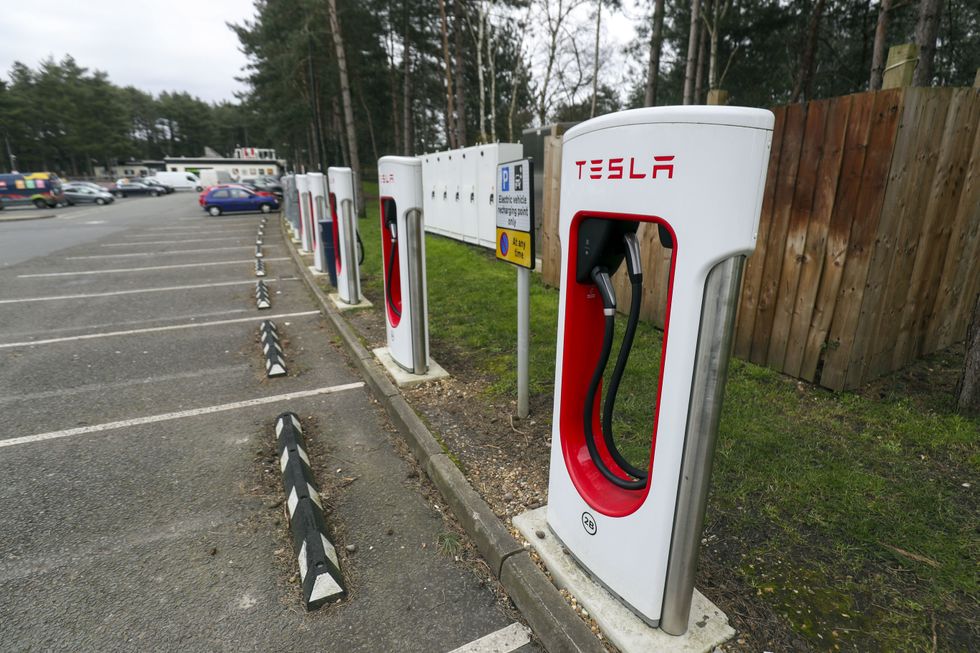Electric car owners could face higher costs in January
PA/GETTY
Drivers will pay on average 21p more to charge their vehicle
Don't Miss
Most Read
Trending on GB News
Electric car owners have been warned they face increased charging costs from January 1 until March 31, 2025, after the UK energy regulator increased the price cap.
The price hike will see EV drivers collectively spending an additional £46,000 per month on home charging, bringing the total monthly charging costs to £3.2million nationwide.
The increase comes as part of Ofgem's quarterly review of energy prices, affecting households across the country during the peak winter period.
But with 1.2 million electric vehicles now on UK roads, the adjustment marks a significant shift in running costs for motorists who will see prices rise.
Do you have a story you'd like to share? Get in touch by emailingmotoring@gbnews.uk

On-street chargers are cheaper than public charging points
PAThe detailed cost analysis found that a full charge for an electric vehicle at home, based on a 60kWh battery, will increase from £14.70 to £14.91 representing a 21p increase per charge under the new price cap structure.
Plug-in hybrid vehicle owners will also see costs increase, with full charging costs rising from £3.43 to £3.48.
The average home car charger uses approximately 108kWh per month, contributing to the substantial collective cost increase across the nation.
The calculations by Carmoola have shockingly indicated that in December total national charging costs of £3.17million will rise to £3.21million from January.
The new energy price cap will rise to £1,738 per year for typical households from January to March 2025. This represents a 1.2 per cent increase from the current cap of £1,717, which runs until December 30.
The price cap determines the maximum unit rates that energy firms can charge customers on standard variable rate tariffs.
But the increase comes at a time when household energy consumption typically reaches its peak during the winter months. While the rise affects all households, it has particular significance for electric vehicle owners who rely on domestic power for their transportation needs.
Despite the price increase, home charging remains significantly more economical than using public charging stations for electric vehicle owners.
Public charging points currently cost an average of 56p/kWh, nearly double the home charging rate.
Even after the January 2025 price cap rise, home charging will cost 24.86p/kWh, making it substantially more cost-effective than public alternatives. This price differential highlights the continued financial advantage of home charging for EV owners.
Aidan Rushby, founder and CEO of Carmoola, said: "Ofgems price cap adjustments impact households across the UK, particularly as we get deeper into the winter months when energy consumption peaks.
"Although this latest rise is relatively minor, 21p here and there adds up. Over time, these costs could significantly impact household budgets, especially if the price cap continues to increase.”
LATEST DEVELOPMENTS:
- Popular car feature going extinct with just one new model released recently - 'Bid farewell'
- SUV owners issued serious threat as climate protesters target 'monster' vehicles - 'Time to hold them to account'
- Drivers with larger petrol and diesel cars could face 'Land Rover tax' and new parking restrictions
 Drivers have called for more public EV chargers PA
Drivers have called for more public EV chargers PAHe added: "We'd suggest that EV drivers aim to charge their cars at home whenever possible, and explore whether their energy providers offer off-peak tariffs to help reduce charging costs by topping up at these cheaper times.”








